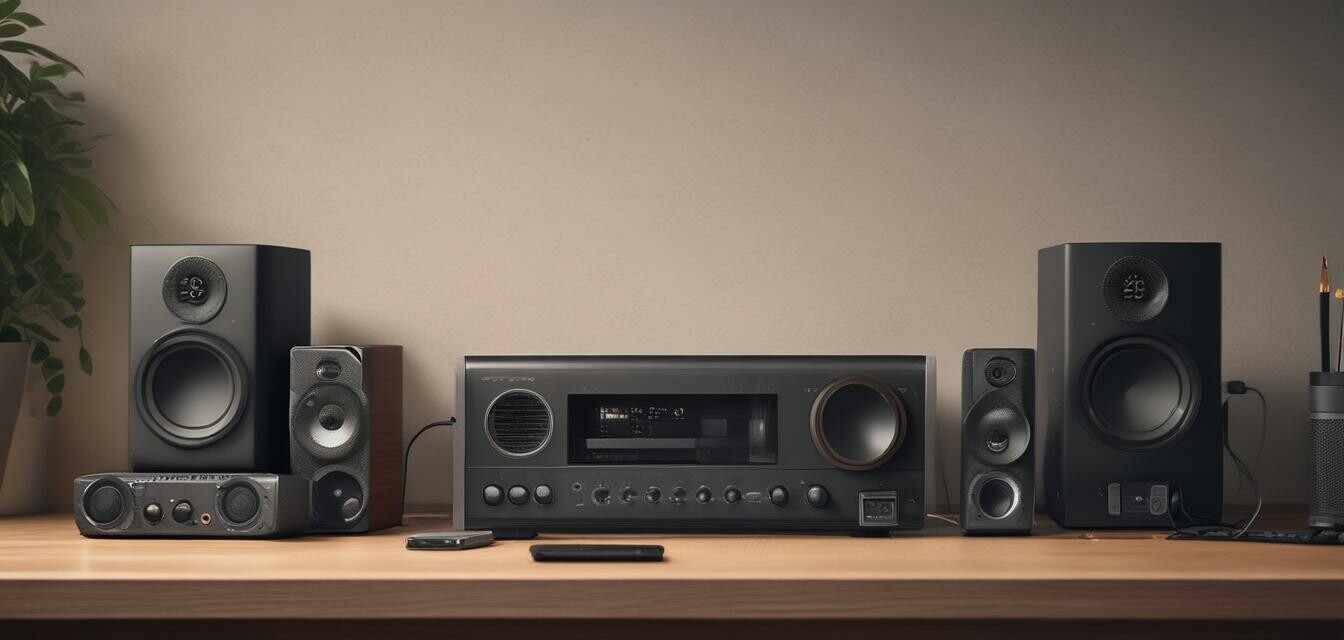
How to choose the right audio gadget for your needs
Key Takeaways
- Identify your personal listening habits before selecting a gadget.
- Consider the portability of the audio device if you're on the go.
- Examine the connectivity options available for seamless integration.
- Evaluate sound quality and battery life to enhance your experience.
- Read reviews and guides to understand the features of different gadgets.
With the ever-evolving world of audio gadgets, choosing the right device can be an overwhelming task. However, understanding your needs and preferences can significantly simplify the decision-making process. This guide will walk you through various considerations to help you select the perfect audio gadget tailored to your listening habits and lifestyle.
Assessing your listening habits
To begin your journey in selecting an audio gadget, it's essential to assess your listening habits. Here are some questions to consider:
- Where do you typically listen to music? (Home, commute, gym)
- What genres of music do you enjoy?
- Do you prefer casual listening or high-fidelity sound?
- Are you interested in multi-device connectivity for gaming or calls?
Portability vs. audio quality
When evaluating audio gadgets, you'll find two primary categories: portable devices and high-fidelity equipment. Each serves different purposes:
| Feature | Portable Devices | High-Fidelity Equipment |
|---|---|---|
| Usage | Ideal for on-the-go listening | Best for home setups |
| Size | Compact and lightweight | Larger and may require specific placement |
| Audio Quality | Moderate to good sound quality | Exceptional sound fidelity |
| Battery Life | Generally longer | Depends on the model |
Connectivity options
Consider the type of connectivity you need for your audio gadget. Common options include:
- Wired Connections: Typically provide better sound quality and latency.
- Bluetooth: Offers convenience and freedom of movement.
- Wi-Fi: Ideal for streaming high-resolution audio.
- Smart Home Integration: Connectivity with other devices for seamless operation.
For more insights on optimizing your home setup, check out our Buying Guides page.
Evaluating sound quality
Sound quality is a crucial factor in your selection process. Here are a few metrics to assess:
- Frequency Response: The range of frequencies the gadget can produce.
- Total Harmonic Distortion (THD): Ideally lower figures mean cleaner sound.
- Soundstage: The perceived spatial quality of the audio.
Battery life considerations
Whether you choose a portable or a stationary device, battery life can affect your listening experience:
- Check the battery life ratings from manufacturers.
- Consider how often you will be using the gadget.
- Evaluate charging options and speed.
Exploring user reviews
User feedback is invaluable when choosing an audio gadget. Look for:
- Common praises and criticisms.
- Insights on how the gadget performs in real-world scenarios.
- Comparative reviews that align with your needs.
For detailed comparisons, explore our audio gadgets category.
Conclusion
Choosing the right audio gadget may seem daunting, but with a clear understanding of your needs and preferences, you can confidently make an informed decision. Remember to evaluate your listening habits, consider portability versus audio quality, check connectivity options, assess sound quality, and explore real-user feedback. With these tips in mind, you're set to find an audio device that enhances your listening experience!
Pros
- Wide range of options available for different needs.
- Advancements in technology improving sound quality.
- Portable solutions for music lovers on the go.
Cons
- Overwhelming number of choices can lead to confusion.
- Potential for short battery life in some models.
- Varying sound quality depending on price range.
